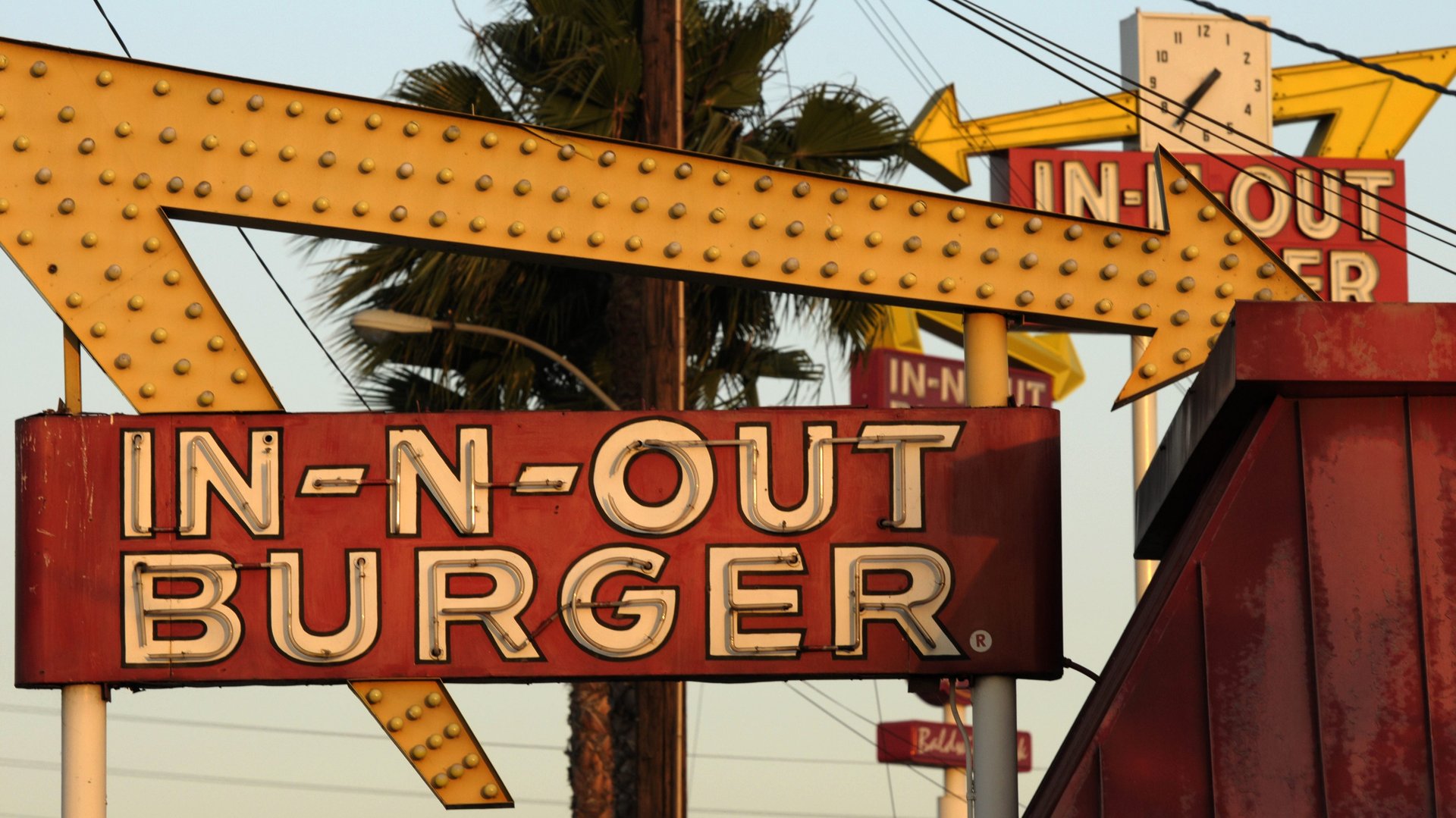A burger chain beat out Google as one of the best places to work in the US
Facebook, Google, and Boston Consulting are the sorts of companies you might expect to see on a list of the best places to work. They pay well and offer generous perks to recruit demanding millennial employees.


Facebook, Google, and Boston Consulting are the sorts of companies you might expect to see on a list of the best places to work. They pay well and offer generous perks to recruit demanding millennial employees.
In-N-Out Burger, a fast-food chain, may be more of a surprise. Yet the Irvine, California-based company is No. 4 on Glassdoor’s list of the best big companies to work for, ahead of Google and many others.
(Note that all such lists should be taken with a grain of salt. Fortune produces its own annual list of the top 100 companies to work for and while there’s some overlap, In-N-Out is nowhere to be found).
According to Glassdoor, which solicits reviews from current and past employees, In-N-Out workers seem to love the company, with 92% claiming they would recommend working there to a friend. CEO Lynsi Snyder, a 35-year-old billionaire whose grandparents founded the chain in 1948, receives a 97% approval rating.
The pay is not great, but good for the industry: In-N-Out hourly associates make $12.27 an hour on average, according to Glassdoor’s survey data, better than the $11.29 an hour made by the average California fast-food worker. The company also offers relatively generous benefits, including a 401(k), paid vacations, health insurance, and free burgers and fries at lunch time.
Mostly, though, workers gush about the fun, family atmosphere, the training, and the opportunities for advancement. The complaints are about the fast pace and long hours spent on their feet. “Working for In-N-Out as my first job gave me all the skills I needed to do well in any other work environment,” wrote one former worker, from Garden Grove, California, on Glassdoor. “It instilled such a strong work ethic, the ability to manage time, work well alongside others, and just made me a better employee.”
In-N-Out has embraced the principles of the “good jobs strategy,” a management theory advanced by Zeynep Ton, an adjunct associate professor at MIT’s business school. The strategy holds that when companies spend more on employee compensation and benefits, the investment pays off in increased productivity and profits, even for low-skilled jobs. While many employers view labor as a cost to be reduced or eliminated, employers like Costco, Starbucks, and In-N-Out operate on the principle that higher pay reduces turnover, improves morale, and increases the pool of applicants. Even Walmart, long known for its low pay, raised wages in order to attract and retain a higher caliber of workers.
One reason In-N-Out can pursue a good jobs strategy is because it owns all of its 319 locations, making it an outlier in an industry that typically relies on franchising to expand. Owning all its restaurants allows the chain to control quality, and ensures uniform training and standards for all its employees.The strategy seems to work: Despite being one of the US’s smaller fast-food companies, In-N-Out locations average $1.98 million annually, fourth among all national burger chains, according to QSR, a trade publication.